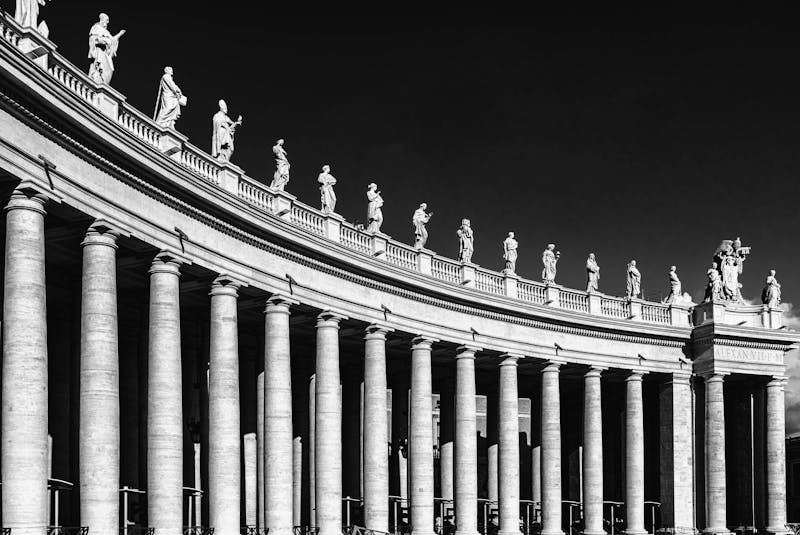
The rise and fall of great empires often follow patterns of expansion, consolidation, and eventual decline. The Roman Empire, which dominated the ancient world for centuries, serves as a seemingly relevant historical case study for understanding how a superpower can unravel.
Today, many scholars and commentators have drawn parallels between ancient Rome and the United States, questioning whether America is heading down a similar path of decline.
In this article we will briefly compare and contrast the conditions that led to the fall of Rome with the present challenges facing the United States, and consider whether the same fate awaits the modern American “empire.”
Political Instability and Leadership Decline
One of the defining characteristics of the late Roman Empire was the decline in effective governance. A series of weak, corrupt, or short-lived emperors failed to maintain political stability. The frequent assassination of leaders, coupled with civil wars, diminished public confidence in the central government.
Similarly, the United States is undeniably facing growing political polarization, lack of qualified leadership, and a decline in public trust in institutions. While America has not yet experienced the level of instability seen in Rome’s later years, the increasing partisan divisions and contentious elections suggests a weakening of the democratic process and polarization of the electorate.
Economic Troubles and Military Overreach
The Roman Empire suffered from severe economic problems, including inflation, excessive taxation, and reliance on slave labor (wage slavery in our case), which stifled innovation and bred discontent among the populace.
Rome also spent vast resources maintaining and expanding its military to defend distant borders, which drained its treasury. In the United States, crippling national debt, underreported inflationary pressures, and economic inequality paint a similar picture.
Additionally, America’s vast military presence across the globe, with extensive commitments to allies and conflicts, reflects a kind of overreach that echoes Rome’s struggle to defend its own vast territories. In this case the “territory” is less geographical and more hegemonic but it is territory none the less.
Cultural Decay and Loss of Civic Virtue
Historians often argue that a gradual decline in civic virtue contributed to Rome’s downfall. As Roman citizens became more focused on personal luxury and entertainment, their commitment to the common good and public service eroded.
Similarly, critics of American society argue that consumerism, entertainment, and the pursuit of individual indulgence have supplanted a sense of community and shared purpose.
The erosion of civil discourse, along with declining civic engagement, could be interpreted as signs of a cultural decline similar to that of late Rome.
External Threats and Migration Pressures
Rome faced constant threats from barbarian invasions, and as the empire weakened, it became increasingly difficult to repel these incursions. The influx of non-Roman peoples into the empire, combined with the inability to integrate them effectively, further destabilized the state.
Today, the United States faces overwhelmingchallenges related to immigration and border security, though not on the same scale as Rome’s invasions. However, the debate over immigration policy, along with rising geopolitical threats, has become a source of division, complicating the nation’s ability to maintain internal unity.
Possible Futures: Collapse or Renewal?
Although there are clear similarities between the decline of Rome and the challenges facing the United States, history does not follow a predetermined path. The Roman Empire fragmented and ultimately collapsed, giving way to centuries of chaos in Europe.
The United States, however, has the potential to renew itself through political reform, economic innovation, and cultural reinvigoration. Unlike Rome, America has a long history of adapting to change and emerging stronger from crises. The real question is: will we learn lessons from the past or are we doomed to repeat the same mistakes? Are we really just caught in an endless loop of repeating cycles or do we have the ability to break free from them and forge new paths toward a more enlightened society?
In a Nutshell
The decline of the Roman Empire can offer valuable lessons for the United States, but it is not a perfect predictor of the future. While there are concerning parallels – such as political dysfunction, economic difficulties, and cultural fragmentation – the modern world is more interconnected and dynamic than ancient Rome ever was.
Whether the United States will follow the same path to collapse or find a way to reinvent itself depends on how it responds to the challenges it faces today. History suggests that empires fall when they fail to adapt, but it also teaches that renewal is possible through vision, leadership, and collective action.
Join us in making the world a better place. You’ll be glad that you did. Cheers friends.